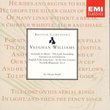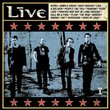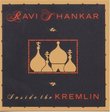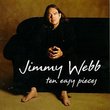| All Artists: Alexander Glazunov, Sergey Prokofiev, Jean Sibelius, Charles Münch, Walter Hendl, Boston Symphony Orchestra, Chicago Symphony Orchestra, RCA Victor Orchestra, RCA Victor Symphony Orchestra Title: Sibelius, Prokofiev, Glazunov: Violin Concertos [Hybrid SACD] Members Wishing: 0 Total Copies: 0 Label: RCA Release Date: 1/25/2005 Album Type: Hybrid SACD - DSD Genre: Classical Styles: Forms & Genres, Concertos, Historical Periods, Classical (c.1770-1830), Modern, 20th, & 21st Century, Instruments, Strings, Symphonies Number of Discs: 1 SwapaCD Credits: 1 UPC: 828766637229 |
Search - Alexander Glazunov, Sergey Prokofiev, Jean Sibelius :: Sibelius, Prokofiev, Glazunov: Violin Concertos [Hybrid SACD]
![Sibelius, Prokofiev, Glazunov: Violin Concertos [Hybrid SACD]](https://nationalbookswap.com/cd//l/70/2870/6122870.jpg) | Alexander Glazunov, Sergey Prokofiev, Jean Sibelius Sibelius, Prokofiev, Glazunov: Violin Concertos [Hybrid SACD] Genre: Classical
|
Larger Image |
CD DetailsSimilarly Requested CDs
|
CD ReviewsOutstanding K. Bowersock | Lubbock, TX | 04/02/2005 (5 out of 5 stars) "These performances by Heifetz are amazing. Heifetz owned the Sibelius concerto all his life (and was the first to really standardize it as one of the great concertos beside Beethoven's Mendelssohn's Brahms's and Tchaikovsky's). The disc is worth the price simply for the Sibelius, yet you also get two outstanding performances of the Prokofiev and Glazunov as well. The sonics are spectacular; it sounds as if these masterpieces were recorded yesterday. Heifetz was the undisputed master of the bow, and this disc proves it; it is a must for all lovers of music." Heifetz' unique way with Prokofiev and Sibelius: unrelenting Discophage | France | 07/31/2008 (5 out of 5 stars) "Puzzling thing with Prokofiev's two Violin Concertos, some fiddlers remain strongly associated with only one: Szigeti recorded only the 1st (twice), including I believe the premiere recording in 1937 with Beecham (it's been reissued by Naxos in their historical series with the fine coupling of Bloch's Violin Concerto, Prokofiev: Violin Concerto Number 1), and Oistrakh, despite being so closely associated with Prokofiev, made only one recording of the 2nd (and no live recording has surfaced), whereas, besides his two studio recordings, a number of live recordings of the 1st have been published (Prokofiev: Violin Concertos Nos. 1 & 2; Violin Sonata No. 2). The same applies to Milstein, who made two studio recordings of the 1st but recorded the 2nd only once, and relatively late, in 1965 (Profofiev: Violin Concertos 1 & 2; Violin Sonata No. 2). So far Mutter has recorded only the 1st - but with her that may not be the last word (Prokofiev: Violin Concerto No. 1; Sinfonia Concertante).
On the other hand Heifetz, who made a historical premiere recording of the 2nd with Koussevitzky in 1937 and this stereo remake with Munch in 1959, never recorded (and, so far as I know, played) the first. Szeryng, Francescatti recorded only the 2nd, I think. Perlman also seems to favor the second (along with Sibelius' it was his first published recording, with Leinsdorf, in 1966, Sergei Prokofiev:Sonatas for Violin/Concerto No. 2), although he did record the first, with Rojdestvenski (Prokofiev Violin Concertos & Sonata for Two Violins). I don't hear anything in the compositions themselves that would justify this preference for one or the other. In fact, despite the near 20 years that separate their composition, I find them remarkably similar. But in the case of the 2nd, the wariness of some to tackle it no doubt had to do with the fact that Heifetz was there first. All amends made for the 78rmp sound, the 1937 version remains the classic (it comes on two CD reissues, on Biddulph and BMG, Heifetz Plays Strauss (Violin Sonata op. 18), Sibelius (Violin Concerto), Prokofiev (Violin Concerto 2) and Heifetz Collection, Volume 4 - 1935-1939, alas both gone now). True, Heifetz' extra bite and lightness of bowing in 1959 with Munch scores in the sardonic finale. But in the firstmovement he is also more high-strung and plays with less abandon, and some of the nonchalant lyricism so endearing in 1937 is gone. In the slow movement, while his tone still has the crystal-like purity that has been so praised, I find that it is also less radiant and ample than in 1937 (something I remarked with his make and remake of Strauss' Violin and Piano Sonata as well, see my review of the above-mentioned Biddulph CD). Something else is also all but gone, in keeping with the tastes of the days: all those miniscule portamentos which in 1937 gave Heifetz' tone a unique vocal quality, especially in the second movement. He played as a soprano in those days would have sung - but in 1959, sopranos didn't sing the same. I personnaly love (and regret) the discreet sentimentality of it - given that Heifetz' is overall an unsentimental approach. Don't get me wrong, though: the 1959 version remains a glorious one with very little peers, and on this SACD reissue, the sonics are stupendous; the Boston Symphony is a pleasure to hear, with silky strings and every orchestral detail coming through - too much so at times even, with the woodwinds and even triangle (try 1st movement at 2:43) given an artificially close presence. Munch leads them with great dynamism and bite. The same comments can apply to Sibelius' Violin Concerto. Heifetz' conception in 1959 with the Chicago Symphony and Walter Hendl is remarkably similar to what it was in 1935 with Beecham (another recording premiere, and the same Biddulph CD as above), but as in Prokofiev, Heifetz in 1959 has become even more radical, and in this case I find that it is the later recording that has the edge. Heifetz' crystal-sharp purity of tone is even more luminous now than in 1935. Again in all three movements the tempos are unrelentingly forward moving, with now an added forward dash: just compare Heifetz' first movement, 14:08 in 1935, 13:32 in 1959, to Hilary Hahn's 17:10 (Schoenberg Violin Concerto Op.36/Sibelius Violin Concerto Op.47). His technique sounds also even more assured, in particular in the double stops of the first movement cadenza (there are passages though which, in 1959 as in 1935, he plays very awkwardly, such as the arpeggios in the short solo in the first movement at 1:40). Witness also the finale, in which so many fiddlers' bows sound sticky: here in 1959 one feels that, even more than in 1935, Heifetz has made a point of pride to countenance no hindrance (although truth is that compared to Hahn there are spots where you hear that he's dangerously walking on the edge). But for all that unrelenting forward drive, there is no loss of lyricism that I can perceive. On the contrary, I find it all the more intense and searing that it doesn't linger and fuss over the phrases (which is something Hahn, with many others, does in spots). Walter Hendl may not have left a name among the great conductors of the last century, yet I find the CSO under his baton no less admirable than the London Phil under Beecham's - and I hear much, much more of it. Heifetz' way with Sibelius certainly doesn't exclude other, broader approaches (especially in the middle movement, which can take a greater sense of space), but it remains a classic of its own. I don't warm up too much for Glazunov's Violin Concerto. It sounds to me like over-blown salon music. Consequently I don't have the score and haven't made any comparative listening, so I'll take Heifetz' recording (from 1963, Hendl again conducting an RCA Victor Symphony Orchestra) as a substantial bonus, assume his reading has all his interpretive characteristics - forward-moving and intensely lyrical - and will hoard it for later. But with or without Glazunov, this disc is indispensable for containing two essential recordings of 20th Century Violin Concertos. " |

 Track Listings (10) - Disc #1
Track Listings (10) - Disc #1



